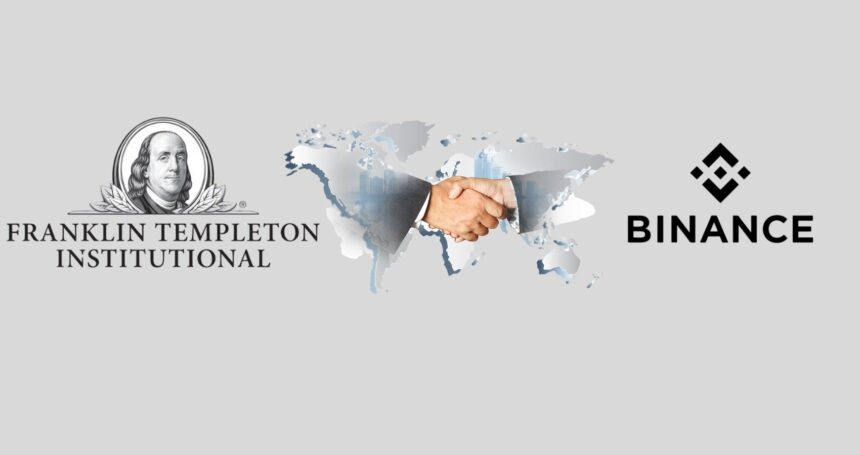Franklin Templeton is joining forces with Binance to build a slate of digital asset initiatives aimed at mainstream investors, the firms said on Sept. 10.
The collaboration seeks to combine Franklin Templeton’s work in compliant tokenization of securities with Binance’s exchange infrastructure and distribution to deliver products that promise faster settlement, broader access, and clearer transparency for a global audience.
The partners did not disclose specific vehicles or timelines beyond an expectation of product updates later this year. Still, the direction is clear.
Franklin Templeton, which manages about $1.6 trillion, has spent the past several years testing how traditional portfolios can live on blockchains.
Binance, which operates the world’s largest crypto trading venue by volume, has been courting institutions that want digital assets with the controls and reporting they expect from established markets. Together, the companies are pitching a blend of Wall Street scale and onchain efficiency.
Executives framed the move as a next step in bringing tokenization into everyday use rather than a niche experiment. Sandy Kaul, EVP and head of innovation at Franklin Templeton, said in a press release,As these tools and technologies evolve from the fringes to the financial mainstream, partnerships like this one will be essential to accelerating adoption.
Roger Bayston, EVP and head of digital assets at the firm, added that the goal is to move tokenization from concept to practice to improve settlement, collateral management, and portfolio construction. Catherine Chen, head of VIP and institutional at Binance, said the company sees the tie-up as a way to open up greater possibilities for investors.
The initiative arrives as tokenization shifts from proof-of-concept to product design. In practical terms, that means turning assets like short-term debt, cash management vehicles, and potentially other income strategies into blockchain-native instruments with programmatic features.
Tokenized instruments can shorten settlement cycles, enable around-the-clock transfers, and allow for more granular position management without sacrificing oversight. The compliance layer matters as much as the code, which is why a partnership between a regulated asset manager and a large exchange will draw attention.
Franklin Templeton has experience navigating requirements in multiple jurisdictions and has tested tokenized fund operations under existing rules.
Binance’s footprint gives the partnership reach, but it also adds complexity as rules differ across markets and product types. The firms’ decision to focus on compliant tokenization underscores that any launches will have to meet local standards for custody, disclosures, and investor protections.
If Franklin Templeton and Binance can package tokenized instruments with clear disclosures, robust controls, and reliable liquidity, the result could be products that behave like familiar fixed income or cash strategies while settling with the speed of crypto rails.



















